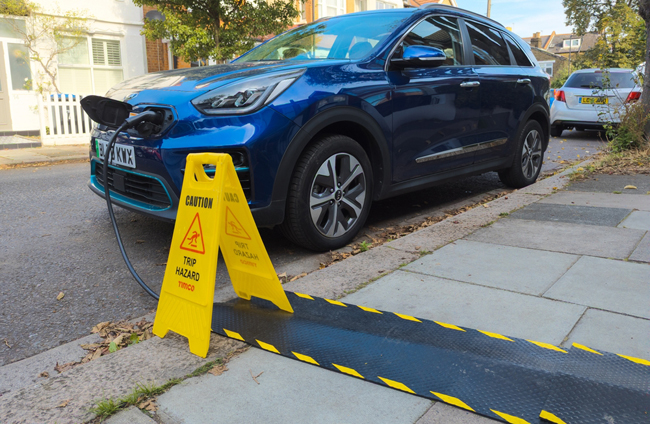The transition to electric vehicles (EVs) will not succeed unless disparities over the availability and cost of charging are addressed, a senior MP has said.
Speaking at the autumn conference of local place directors' body ADEPT, Bill Esterson, chair of the Commons Energy Security and Net Zero committee, highlighted a number of challenges in implementing the ban on sales of new petrol and diesel cars and vans by 2030, which the Government has recently re-iterated.
Mr Esterson, who was a shadow transport minister before the General Election, acknowleged that he is personally fortunate, with a well-paid job, and 'have as a result of inheritance been in a fortunate position where I could afford solar PV, storage, and electric vehicle and an electric charge point in my drive'.
He added: 'And I am typical of the sort of person who is able to take advantage of these fantastic changes and playing my part in the transition. But far too often, for many people, it’s simply not affordable.
'Public charging is hugely expensive – it’s very cheap if you can charge at home. I’ve got incredibly cheap driving.
'So one of the challenges [is] how do we make this available to everybody, because unless you make it available to everybody, it’s never going to be possible to take everyone with us on the transition journey that is so important.'
ADEPT president Ann Carruthers put it to him that for people who are not able to charge EVs on their driveway, ‘we still don’t have an answer to the simple things like trailing cables’, with many local authority legal and insurance departments unwilling to allow it.
She added: ‘The devil is in the detail but that can also stop the progress.’
Mr Esterson replied: 'Some councils are giving consent for cables across pavements and many aren’t. Why are some able to do it and some not? What is it that they have found out that others haven’t? So I think we need to learn from each other.
‘Things like plugging into lampposts is another scheme, but again, that’s not as cheap.’






